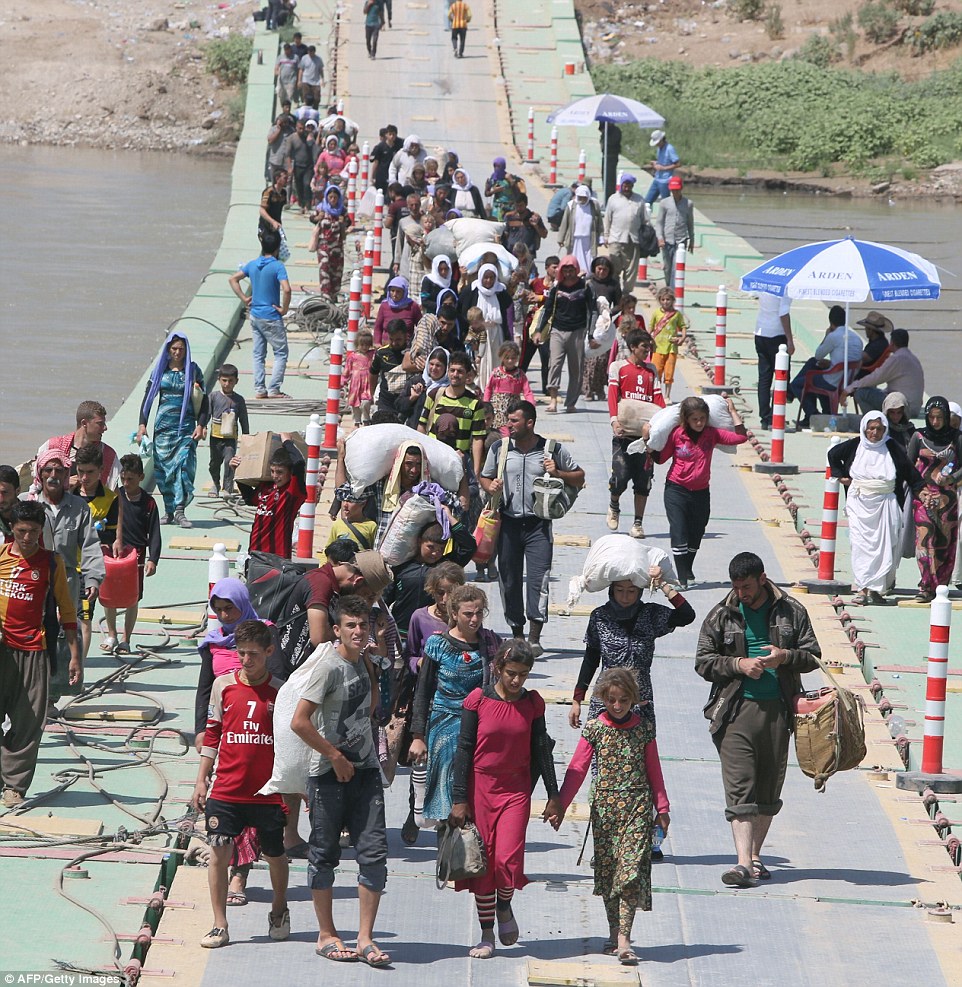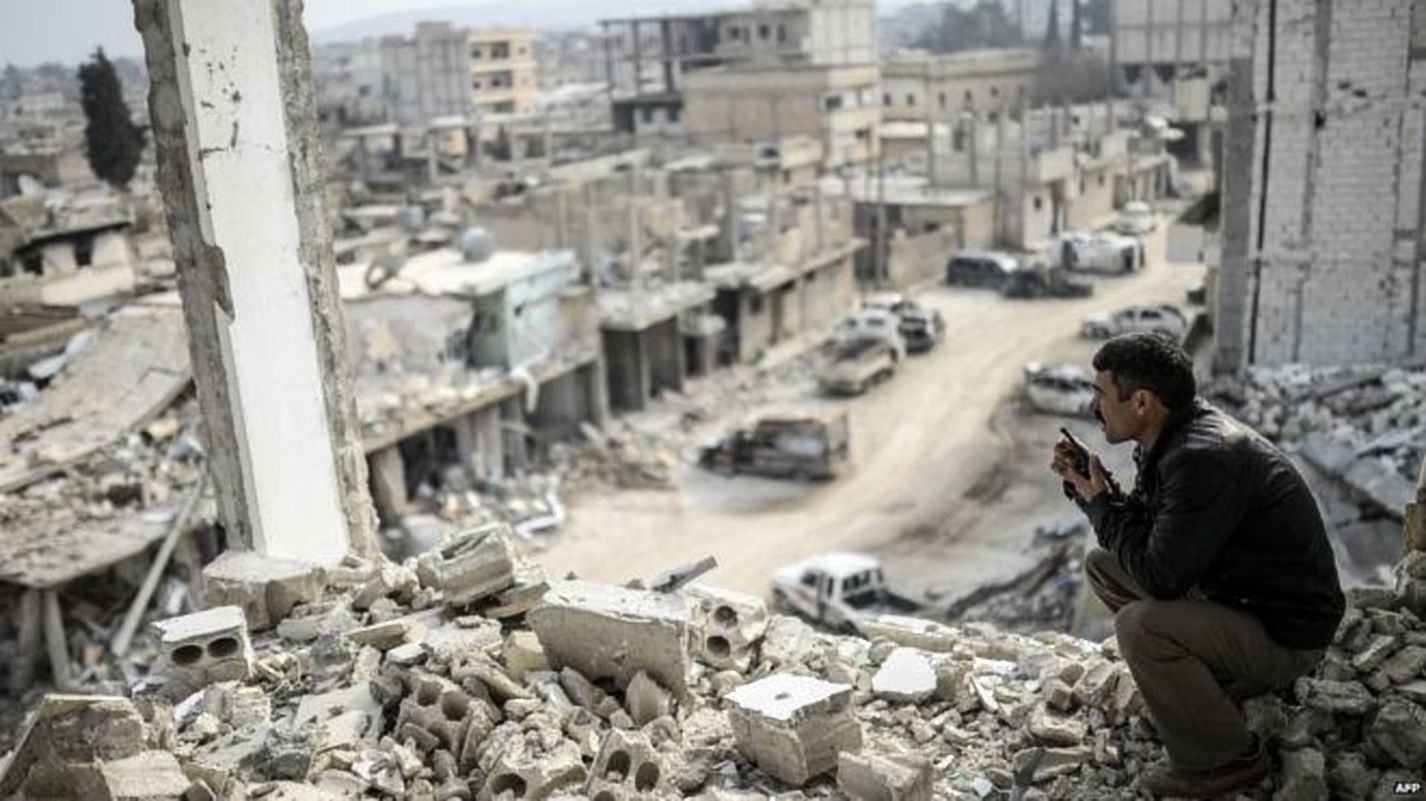Many years ago in the late 1980s, before ‘ISIS’ appeared on the scene, there was the story of Al mujahideen, Al Qaeda and Afghanistan.
It was a story that many seem to forget when analyzing events today, yet it has stark similarities with the many issues that are currently happening. Both wars involved jihadists in a foreign country, and both also involved the question of the return of these jihadists after the war ended.
Just three days ago, US President Donald Trump tweeted that “Britain, France, Germany and other European allies to take back over 800 ISIS fighters that we captured in Syria and put them on trial.”
The United States is asking Britain, France, Germany and other European allies to take back over 800 ISIS fighters that we captured in Syria and put them on trial. The Caliphate is ready to fall. The alternative is not a good one in that we will be forced to release them……..
— Donald J. Trump (@realDonaldTrump) February 17, 2019
It is ironic that at a time when the world needs the most rational solutions, it comes from a political figure that no one is willing to listen to. Yet this time, for once, Trump must be listened to.
When looking back at how the Afghanistan war ended, one evidently sees how the question of dealing with hundreds of returning Arab mujahideen fighters was not dealt with effectively.
Many of the Arab jihadists were able to disperse in the region due to lack of control and create several Islamist organizations that committed the most horrific crimes, including al-Gama’a al-Islamiyya in Egypt, which included several hundred Afghan jihadists.
Inability to put them on trial and leave them where they are also led them to exploit this opportunity and to reorganize to create ‘Al Qaeda’, which eventually expanded and became one of the largest network of extremists.
Arab-Afghans also took advantage of governments that adopted a softer approach or with weaker security services, like in Pakistan, Sudan and Yemen.
What one can clearly see is that there is an ultimate price to be paid when these jihadists are left loose and not prosecuted for their mass atrocities and terror.
So far, European governments have not come up with a unified solution in dealing with the returning IS fighters.
Germany’s foreign minister Heiko Maas noted that trials would be “extremely difficult to realize” largely due to the absence of “judicial information.”
Britain is also rejecting Trump’s option, as Security Minister Ben Wallace said “I’m not putting at risk British people’s lives to go looking for terrorists or former terrorists in a failed state,”
Recently, the British government revoked the citizenship of Shamima Begum who was an unapologetic member of ISIS and was pleading to return back with her third child, making her stateless.
While most of the British public applauded the decision, there were other mixed reactions.
“Just let me say there was a case of an Australian Lebanese ISIS guy. He was radicalized in Australia. They wanted to strip him of his nationality and send him to Lebanon. I can never agree to that. We have enough problems,” journalist Jenan Moussa wrote.
Just let me say there was a case of an Australian Lebanese ISIS guy. He was radicalized in Australia. They wanted to strip him of his nationality and send him to Lebanon. I can never agree to that. We have enough problems.
— Jenan Moussa (@jenanmoussa) February 19, 2019
What Shamima Begum's case demonstrates is we urgently need a better way to deal with the problem of returning ISIL members. Even if depriving her of her citizenship is legal, it denies victims of ISIL justice and leaves an extremely dangerous individual at large.
— Jimmy Rushton (@JimmySecUK) February 19, 2019
https://twitter.com/scribblercat/status/1097946605641175040
I’m afraid that for various reasons I think today’s decision to strip Miss #Begum of her UK citizenship is a mistake & a dangerous precedent. She was born here, educated here & is our responsibility. We should defend our system & she should be brought back to face the UK courts. pic.twitter.com/1BWYHhQKH7
— George Freeman MP (@GeorgeFreemanMP) February 19, 2019
“How do we prosecute them?” is a question that European governments now ask. Though ultimately, as champions of the rule of law, global justice, and human rights, and the liberal international order, the question they should instead be asking is, “how should we restore justice?”
Justice for the local communities that were terrorized and unjustly killed by ISIS, for the local and foreign soldiers that had to risk their lives in order to fight against them, and for the innocent lives that were lost around the world as a result of these terrorist attacks.
You supported and embraced Nadia Murad, who was a Yazidi victim of ISIS and was awarded the Nobel Peace Prize, yet struggle to adopt a serious stance in persecuting and punishing the criminals of the organization that she suffered from.

This is not just an issue of prosecuting them, but of revising your approach in allowing hate clerics and Islamists to freely promote their toxic ideas on your lands under the pretext of human rights and free speech, of failing to integrate regular Muslims into your societies, of your disastrous foreign policies in the Middle East and of creating a world order that provides more fuel for ideologies like that of ISIS and other extremist ones.
One of the three British girls that fled to ISIS in 2015, Amira Abase, was taken to an extremist rally in London in 2012 by her father, organised by banned terror group Al-Muhajiroun and which featured hate clerics Anjem Choudary and Michael Adebowale.
Abu Hamza al-Masri is also an Egyptian cleric who was the imam of Finsbury Park Mosque in London where he preached Islamic fundamentalism and militant Islamism.
These terrorists are your citizens, and your responsibility.
The Arab world and Middle East as a whole is already paying the price for failing to deal with the returned mujahideen fighters from Afghanistan, but are you willing to do the same?






Comment (1)
[…] Source link […]